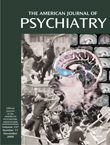Healing the Healer: Treating the Addicted Physician
The authors take the reader through an organized educational process in defining, explaining, and orienting us to the dynamics of treatment. Information regarding the numbers of medical professionals who are addicted or abusing chemical substances is impressive. The stresses, personality traits, and their expectations of themselves as well as the expectations of others are frequently the basis for their dependency. Although the result is generally optimistic, the processes for positive outcomes are complex. The disease of chemical dependency is addressed in a broad articulate discussion of the effects of neurotransmitters, genetics, and environmental factors on the chemically dependent person.
A description of two outstanding programs for chemically dependent professionals takes us through each phase of treatment planning. The risks as well as projections of what is necessary for a positive outcome are described in a clear and succinct fashion. The research studies and addiction treatment outcomes present an impressive review of what is required for addiction treatment regimens.
Although many members of the health professions enter their chosen fields with rescue fantasies and high expectations, the stresses of professional and family life often make them the victims rather than the rescuers. The clinical settings chapter relates the risks and problems within specific specialties. The discussion of contracting for help and reentry to practice is particularly helpful to enlighten hospital staff organizations as well as medical societies.
The economics of the current medicine and health industry have imposed a heavy component of stress on health care professionals. More and more medical staff conferences are addressing stress and unhealthy practices in the workplace as well as programs designed to alleviate stress. Professional burn-out is frequently accompanied by attempts at self-medication with addictive substances.
The chapters on medical marriage and special issues for women reflect on the pressures of the environment surrounding the chemically dependent professional. Relationships ranging from supportive to enraging and rejecting provide a spectrum that affects the durability of the dependency. The family, the marriage, and the children are all victims of denial when the addicted professional avoids treatment. Psychiatry has learned the difficulty in dealing with comorbid chemical dependency and psychiatric illness. These are, in the authors’ words, “highly complex processes of recognizing psychopathology in chemically dependent individuals. As healers we must have the courage and the energy to heal our colleagues who falter in their professional and personal lives.”



